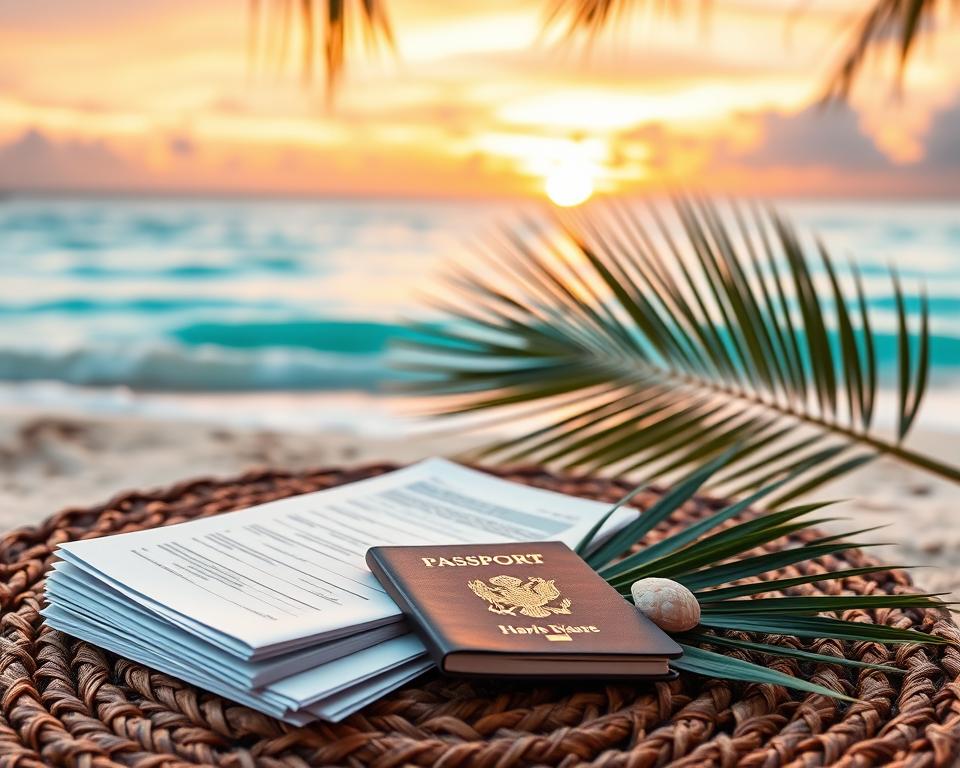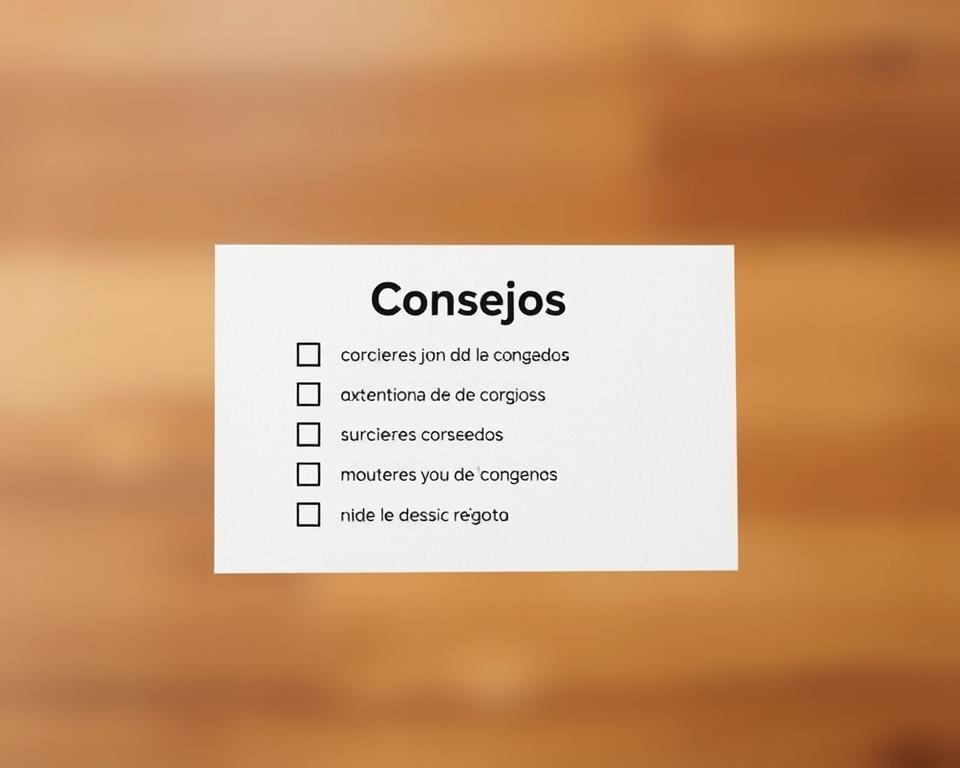Advertisements
Do you know how a simple adjustment to your plan can reduce expenses and improve your experience?
travel tips They start with the basics: reviewing documents, confirming requirements with the embassy, and setting a realistic timeline.
Plan your flights, transportation, and accommodation with a clear budget. Research the local currency, customs, and healthcare system before you leave.
Avoid peak seasons and learn to pack light; this way you save on fares and move around more freely.
Purchase travel assistance or insurance, store copies of documents in the cloud, and share an emergency contact with someone you trust.
Compare online information with local people: often direct advice changes your perception and avoids surprises.
This guide is practical and cultural; it does not promise magical results. It offers verifiable steps and examples to help you save time and money without sacrificing quality on your adventure.
Advance planning saves time and money
Define a flexible schedule and an initial budget to guide your decisions. Starting with a simple plan helps you avoid impulse purchases and see real options before committing.
Basic schedule: flights, accommodation and internal transport
Mark tentative dates for flights and hotel nights, and leave some free days as a buffer. Include local transport segments to know how much time and money you'll need between points.
Budget by category with margins for unforeseen expenses
Separate expenses: Flights, accommodation, transport, food, activities, insurance, and extras. Add 10–15% for any case so you don't sacrifice flexibility.
Tools for comparing prices without bias
Use online comparison tools in incognito mode and combine alerts with direct supplier reviews. Compare recent guides and blogs with official websites and local forums; local information often provides a different perspective.
- Write down exchange policies before paying and keep everything in a digital folder with copies.
- Block refundable bookings and readjust if the price drops within the allowed window.
- Calculate the total cost of transportation at your destination to avoid surprises.
Research your destination before leaving
Before you leave, gather key information about the country that will help you avoid surprises at your destination. A few simple steps allow you to make safe decisions and save on your trip.
Check the currency and the predominant payment method. Carrying some cash and a low-fee card reduces unexpected charges.
Check local customs: tipping, dress codes, and opening hours. Adjust your clothing if you visit temples or public buildings so as not to attract attention.
Check health, standards and documentation
Confirm how the healthcare system works and whether the foreigner needs valid insurance. Save hospital and consulate contact information on your phone, just in case.
Compare sources and ask local people.
Read recent guides and compare them with local groups and updated reviews. A local opinion It can change what you thought was certain about transportation or neighborhood safety.
“Comparing online information with someone who lives there gives you a real advantage in practical decisions.”
- Save official links and offline maps.
- Note the immigration requirements and minimum funds required.
- Ask local people for short and respectful recommendations.
If it's your first time in a destination, save useful addresses and check out this quick guide on what to know before you leave: 8 things you should know about you.
When to travel: avoid peak seasons and holidays
Choose the right date for your trip It reduces costs and improves the experience at the destination.
The middle season It's usually less crowded, has better flight prices, and more accommodation options. If you're looking for peace and quiet and to save money, this is the best time to go.
Advantages and practical strategies
Check local holidays and mass events: they increase the number of visitors and the rates.
- Choose weeks before or after school holidays; the price difference can be significant.
- Adjust your clothing to layers and light jackets to avoid extra baggage.
- Check transportation and attraction schedules; some services change outside of peak season.
“Assist Card advises avoiding peak seasons to avoid high prices and overcrowding.”
Keep in mind that some places are very seasonal: if you're looking for whale watching or northern lights, the window may be short and you should plan well.
Ultimately, the timing of your trip matters. A small adjustment to your travel dates can lower flight costs and enhance your overall experience.
Smart flights: how to pay less without falling into traps
Paying less for your flights requires simple rules and careful attention to the fine print. Set up alerts and check price calendars for your trip. Look for 2–3 alternative airports within a reasonable radius; sometimes the difference is worth the extra transfer.
Evaluate strategic scalesA connecting flight can lower the cost without adding many hours. Confirm minimum connection times and terminals: changing airports in the same city can ruin your itinerary.
Baggage policies and hidden fees
Read the baggage policy: the basic fare may exclude carry-on baggage or seat selection. Add up service charges before paying to know what really matters.
- Check payment rates and fees by method; avoid surprises at the end.
- If you're traveling with people, compare checking one large item versus several small ones.
- Save screenshots of the rate and conditions; this serves as support if there are changes during the purchase.
“Plan your purchase in advance and evaluate transportation and accommodation together.”
A useful example: if your luggage slightly exceeds the limit, a compression bag can save you the extra charge.
Accommodation that delivers: a balance between price and location
A well-connected neighborhood saves you time and money throughout your trip. Choose a location with nearby public transport and basic amenities. This reduces travel time and last-minute shopping trips.
Evaluate alternatives According to the map and real reviews. If you pay a little more for location, you'll save on taxis and gain time to enjoy your destination.
Neighborhoods with good access and services
- Prioritize areas with frequent transport, supermarkets and pharmacies; they save you time and money.
- Filter by map: an hour less in transfers makes a big difference on a short trip.
- Look for products like apartments with kitchens to reduce food expenses.
- Pack clothes that are easy to wash and check if there are laundromats nearby so you can pack fewer items.
Last-minute offers and flexible cancellation
Compare options with flexible cancellation; they allow you to take advantage of price drops without risk. Assist Card suggests planning ahead, but if you have flexibility, last-minute deals can be useful.
“Planning accommodation in advance reduces surprises, but flexible bookings give you room to improve the final bill.”
Check reviews from recent guests and use reliable guides. Consider cancellation insurance if your itinerary changes frequently.
Transportation within the destination country without overspending
The way you plan your transportation can turn expensive journeys into savings opportunities. Before deciding, evaluate your travel routine: will you be moving around the city a lot or will you be taking rural routes?
Passes and rechargeable cards
Daily or weekly subscriptions usually benefit the account If you take several trips a day, local rechargeable cards offer reduced fares, free transfers, and daily spending limits.
- Purchase a pass if your itinerary includes museums, tours, and frequent travel.
- Activate contactless modes on your mobile phone when the card allows it.
- Keep enough balance and check refund policies.
When to rent a car and what documents to bring
Renting may be the best option if you are visiting rural areas or have limited schedules. Calculate tolls, fuel, and parking Before booking; those costs add up quickly.
Verify documents: in some countries, such as Australia or Costa Rica, An international driving permit may be requiredIn addition, many agencies require a credit card for the deposit. Arrange this well in advance to avoid legal issues.
“Comparing transportation options in different cities saves you more money than choosing the most convenient option at first glance.”
Documentation and requirements for entering a foreign country
Before finalizing your trip, confirm that all documentation meets the requirements of the destination country. An early check-in prevents surprises at immigration control.
Valid passport and the six-month rule
Most countries require that your passport have at least 6 months Valid from the date of return. Check the expiration date and renew in advance if necessary.
Visas, vaccines, and certificates that may be required
Confirm if you need a visa based on your nationality and the guy Travel: tourist, work or study. Requirements vary between countries and seasons.
Also verify that your vaccinations or health certificates are up to date. Schedule medical appointments in advance if your destination requires it.
Embassies and consulates: the official source
Consult the website of the embassy or consulate of your destination for your specific case. Avoid relying solely on forums or social media; information official is the one that has legal validity.
- Review documents in advance and keep physical and digital copies.
- Some destinations require proof of funds, reservations, and travel insurance.
- If you change your itinerary, please validate the requirements again.
“Assist Card recommends confirming with the embassy or consulate before traveling.”
Travel and health insurance without overpaying
Before you leave, confirm that your insurance covers the essentials of your trip. Check medical limits, exclusions, and deductibles to avoid surprises.

What coverage to consider based on your plan
Choose a policy that aligns with the type of itinerary. Check medical spending limits, coverage for pre-existing conditions, and whether it includes mental health or pregnancy.
Emergency assistance and luggage protection
Prioritize 24/7 services with attention in your language. That makes all the difference in a real accident or illness.
- It includes assistance for medical emergencies and repatriation.
- Coverage for cancellation and baggage delay.
- Sports extension if you practice risky activities.
“A well-chosen insurance policy improves the experience, it doesn't guarantee it.”
Save your policy number and assistance contacts and share that information with a companion. Compare providers and assess the cost-benefit ratio before making a decision.
Money and payments: avoid unnecessary fees
Organize your money before you go out: small decisions lead to big savings. A simple plan helps you pay less at your destination and react quickly to unexpected charges.
Fee-free cards and account control
Choose cards that do not charge fees for payments or withdrawals. Monitor your account online and activate alerts. Carry a backup card in a separate location from your primary card.
Currency exchange and ATM withdrawals
Avoid exchanging large amounts of money at airports. Compare exchange rates at currency exchange offices in the city or use ATMs with rate alerts. Decline dynamic currency conversion at terminals: pay in local currency to get a better rate.
Sending or receiving money: fees and taxes
Compare rates, exchange rates, and times before using an online service. exampleSome platforms (Western Union Chile) show rates starting from fixed amounts and add VAT and exchange rates; run a simulation on the day of shipment and validate the destination country.
- Use cards with free withdrawal limits and check fees.
- Keep a basic amount of cash on hand and distribute it in several pockets.
- Keep the bank's support information to resolve any issues.
“Run simulations on the same day and compare the total cost before confirming a shipment.”
Mobile connectivity and offline maps
Before you leave, decide how you're going to stay connected during your trip. Evaluate options: eSIM, local SIM or an international plan depending on duration and destination.
eSIM, local SIM and roaming in the EU
If your device supports eSIMActivate it before you fly and land with data already in use. Within several EU countries, many European lines offer data at no extra charge; check with your operator to avoid surprises.
Outside the EU, it is usually cheaper to buy a local SIM or an international SIM than to pay for traditional roaming abroad.
Offline maps and translations
Download Google Maps and language packs to your translator before your trip. This way you'll have critical information even without a signal.
- Save accommodation keys and tickets in offline digital items for data-free access.
- Set up your map app account and activate the language pack in the translation app.
- It includes an adapter and a lightweight external battery to ensure connectivity during long days.
Luggage and clothing: travel light with the essentials
Pack with mobility in mind: Less weight gives you more options at your destination and reduces costs on flights and transfers.
Capsule list according to climate and culture
Pack a capsule bag with versatile pieces. Bring 2–3 outer layers, 2 pairs of pants, and a lightweight or waterproof jacket.
Choose quick-drying clothes and colors that match; that way you have more looks without extra bulk.
- Include a scarf or garment that covers shoulders according to local regulations.
- Prioritize multifunctional items: a jacket with pockets and urban/sports sneakers.
- Wash on the go: soap sheets and hotels with laundry facilities reduce the amount you need to carry.
Items that save space and money
Pack compact items that will get you out of a pinch. Compression bags, a microfiber towel, and a reusable water bottle are essential.
Weigh your luggage before leaving with a handheld scale and adjust your toiletry bag using refillable containers.
“Traveling light makes you more flexible and saves you from unexpected charges.”
Digital security and memory backup
An organized backup saves you in case of loss or theft. Before you leave, sync your photos and back up key documents. This frees up space and effortlessly preserves essential information.
Photos in the cloud and copies of documents
Activate automatic backups Take photos when you're on Wi-Fi. Assist Card recommends syncing to keep memories and free up phone memory.
Save scans of your passport, policy, and reservations in one account Secure. Download offline versions in case there is no internet connection at the destination.
- Use services with two-step verification and strong passwords.
- Keep an offline note with emergency numbers and card blocking information.
- Share an online and a physical copy of your itinerary with a trusted contact.
“Limit the use of ATMs in poorly lit areas and protect your PIN at all times.”
Disable automatic connections to open Wi-Fi networks and use a VPN if you access sensitive data. Review permissions for apps you don't need and reduce your vulnerability if you travel abroad.
Slow travel: fewer destinations, more experience
Spending more days in a few places transforms your trip. By reducing changes, you'll experience local rhythms and save on transportation.
Slow travel It gives you time to immerse yourself in the life of the neighborhood. You can shop at markets, talk to people, and notice details that guidebooks don't mention.
It's not a hard and fast rule: if a city doesn't suit you, it's perfectly fine to skip it. Changing your plans on the spot can be the best decision and improve your experience.
- Fewer check-ins: Fewer commutes mean less expense and more peace of mind.
- Long days in one place: Take advantage of weekly discounts on accommodation.
- Walk and use local transport: You observe everyday life without haste.
- It allows for surprises: Leave room in the itinerary for the unexpected.
“Staying home and moving around less is often the simplest way to enjoy yourself and save money.”
Traveling alone or with friends: how to optimize expenses
Sharing expenses in a group turns expensive services into fairer per-person prices. If you're going with friends, creating a joint account makes it easier to split the costs of accommodation, transportation, and tickets.
Negotiate as a group It often lowers prices: a private tour for several people is cheaper per person. Coordinate flights and transfers together when group rates are available.
- Use apps to split the bill without conflicts and write down each person's amount.
- Share basic products (adapter, first aid kit, sunscreen) instead of buying duplicates.
- Distribute luggage: sometimes it's better to pay for a large suitcase and only take a cabin bag each.
If you're traveling alone, prioritize private rooms in hostels with common areas. This way you can meet people without sacrificing privacy and take advantage of cost-saving activities.
Define clear rules about schedules, clothing, and food preferences. You avoid misunderstandings and maintain a friendly atmosphere.
"Start small and pack only what's strictly necessary; that way, traveling alone is easier and cheaper." — Western Union
Evaluate individual insurance policies if coverage differs by activity, and remember that when renting a car, you will often be asked for a credit card for the deposit.
Tips for travelers who make a difference
A curious and humble attitude It opens more doors than any guidebook. Asking respectfully and listening to local people often reveals genuine and safe options.
Ask questions without shame and respect customs
Ask short, friendly questions. Ask for directions, opening hours, or food recommendations. Showing interest in local customs facilitates interaction and avoids misunderstandings.
Respect rules in temples and communities: Observe dress codes, ask if photography is allowed, and follow instructions from local guides.
Eco-habits: reduce waste and take care of places
Bring a reusable water bottle and avoid single-use plastics. Small actions reduce waste and protect natural areas.
- Avoid souvenirs made with animal parts or protected resources.
- Follow marked trails and respect barriers; this way you take care of the environment and help to conserve it.
- Prefer services and operators with responsible practices and verifiable licenses.
“By comparing online information with local people, you can find more sustainable and authentic alternatives.”
Conclusion
End each trip with simple decisions that protect your budget and your peace of mind.
You get a useful roadmap: planning ahead gives you room to enjoy each country and destination at your own pace.
Before booking, check requirements with the embassy and official guides; rules change and asking a question in time avoids problems.
There is no single way to travel: It can be with friends, alone, or as a couple. Listening to local people enriches the adventure and provides new information.
Save copies and photos to the cloud; you'll have a backup in case of any problems. Explore trends responsibly and respect the local culture and the culture of the foreigners you're visiting.
Enjoy every ending and every beginning: the next journey comes if you stay curious and responsible.



